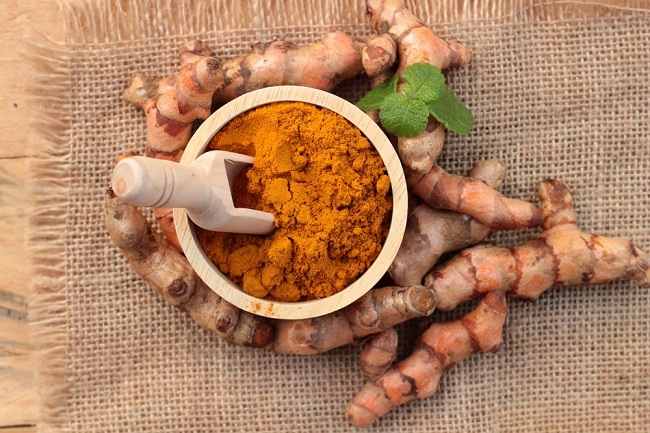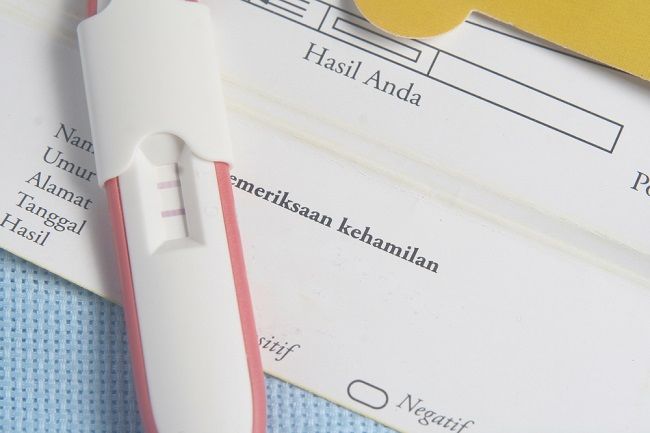Meeting the iron needs for babies is very important to support their health and growth. Until now, iron deficiency in infants is still one of the most nutritional problems in the world. Without enough iron, babies can develop anemia and impaired growth and development.
Iron plays an important role in the formation of hemoglobin, which is a component of red blood cells that transports oxygen throughout the body. Without enough iron, the body cannot make hemoglobin. As a result, the tissues and organs of the body can experience a lack of oxygen.

There are several factors that can increase the risk of a baby being iron deficient, namely:
- Born to a mother who experienced anemia during pregnancy.
- Born prematurely or have a low birth weight.
- Babies get breast milk from iron-deficient mothers.
- Impaired absorption of iron.
- Infants drink formula that is not fortified with iron.
Iron deficiency in infants and children can lead to anemia, a condition in which the body lacks red blood cells. If not treated immediately, this condition can cause various health problems and disturbances in the growth and development of children.
Signs and Symptoms of Iron Deficiency in Babies
Not only in the formation of hemoglobin and red blood cells, iron also has an important role to support the growth and function of the baby's nerves and brain.
Therefore, iron deficiency in infants can cause them to experience developmental disorders to learning and language difficulties.
In addition, there are several other signs and symptoms that a baby can experience if he or she is iron deficient, namely:
- Pale skin.
- No appetite.
- Does not gain weight or is difficult to gain.
- Weak and lethargic.
- Seems less active or rarely wants to play.
- Enlarged or swollen tongue.
- Have a weak immune system or have frequent infections.
Iron Needs in Babies
At birth, the baby has iron stores that come from the mother's blood. Therefore, the diet and nutritional intake of the mother during pregnancy is important for the adequacy of the baby's iron.
In the first six months of life, babies will get iron from breast milk. After six months, breast milk alone is not enough to meet the baby's nutrition. Therefore, at this age babies need additional iron from solid foods (MPASI).
The following is the iron requirement for babies according to their age:
- Age 0-6 months requires 0.3 mg of iron per day (fulfilled through exclusive breastfeeding).
- Ages 7-11 months need 7-11 mg of iron per day.
- Ages 1-3 years (toddlers) need 7 mg of iron per day.
To meet your little one's iron needs, you can give complementary foods from foods rich in iron, such as:
- Beef, goat, chicken, or fish.
- Chicken liver or beef liver.
- Egg.
- Vegetables, such as spinach, keciwis, broccoli.
- Legumes, such as kidney beans and soybeans.
- Tofu and tempeh.
- Iron-fortified cereals.
- oatmeal.
The best iron comes from animal food sources because it is more easily absorbed by the body. But if you can't give your baby animal iron, green leafy vegetables that contain lots of iron can also be an option.
Tips for Meeting Iron Needs in Babies
To meet the needs of iron in infants, the following are things that need to be considered:
- Givefoods that contain vitamin CFoods rich in vitamin C, such as tomatoes, papaya, guava, and oranges, are good to be given with complementary foods that contain iron. This is because vitamin C can increase the absorption of iron by the body.
- Limit the provision of milk as a source of iron intakeMilk does contain nutrients, but is not a good source of iron. Do not give cow's milk before your little one is 1 year old because it will be difficult to digest. If given after the age of 1 year, the portion also needs to be limited, which is no more than 700 ml per day, and try to choose milk that has been fortified with iron.
- Avoid giving MPASI containing iron with milkThe provision of foods containing iron should not be accompanied by drinking cow's milk or tea. The high calcium content in milk can inhibit the absorption of iron from complementary foods. While tea contains tannins which can also inhibit the absorption of iron. The solution, give cow's milk or tea outside the main meal.
- Give iron supplements
However, giving iron supplements to infants must be based on a prescription from a pediatrician.
Because iron for babies is one of the important nutrients for their health and growth, then you need to make sure your baby's iron intake is adequate. If your little one is at risk for iron deficiency, for example because of difficulty eating (picky eater), try to consult a pediatrician.









